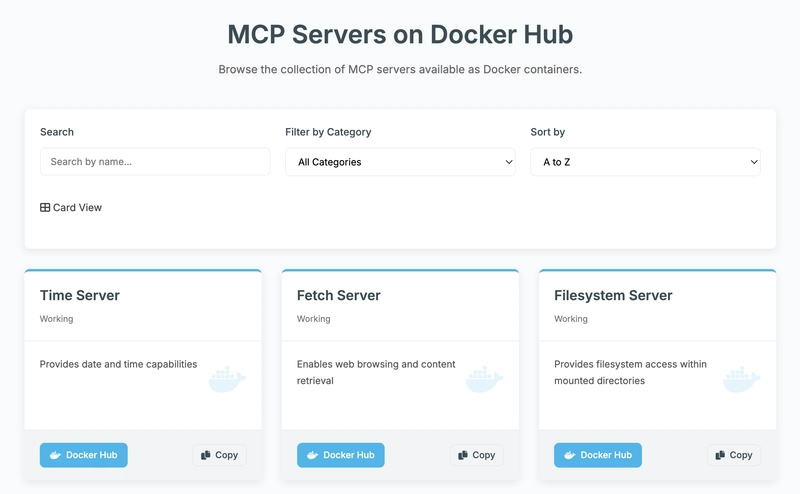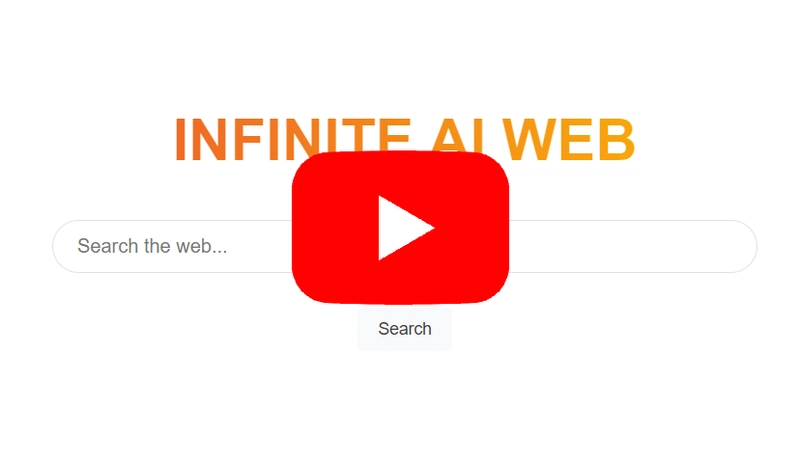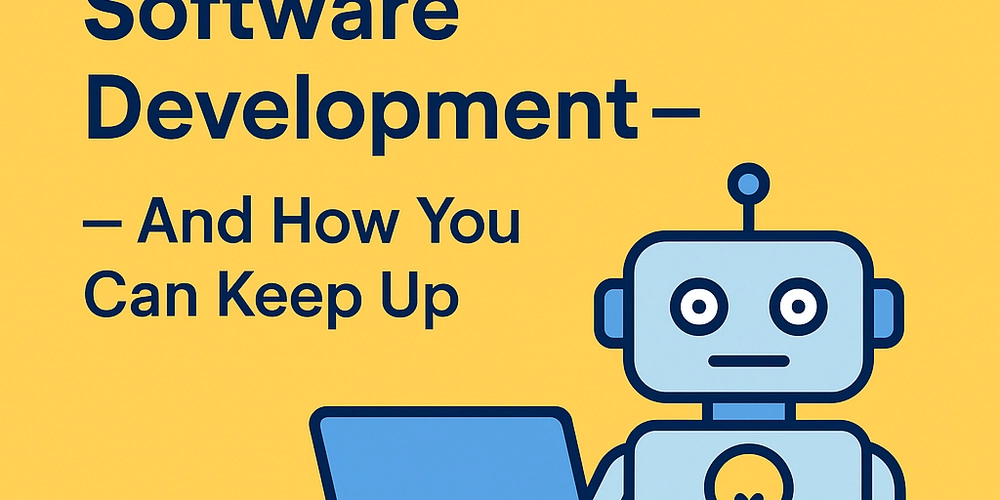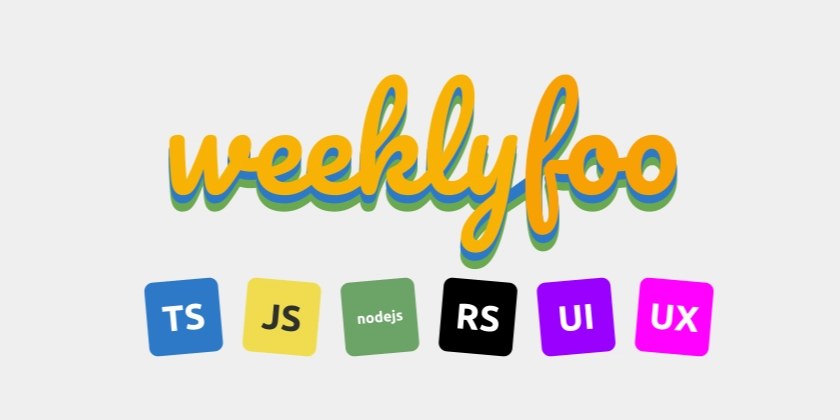Introducing the MCP Community Portal: Bridging AI Assistants and External Tools
Hello Community! I'm excited to share a project I've been working on: the MCP Community Portal. Click here to visit the portal This is a modern, community-driven collection of Docker Model Context Protocol (MCP) servers, tools, and resources that aims to revolutionize how AI assistants like Claude interact with external systems. What is the MCP Portal all about? The Model Context Protocol (MCP) is an emerging standard that enables AI assistants to interact directly with external tools, databases, and services without requiring complex API integrations or extensive coding knowledge. The MCP Portal serves as: A central hub for MCP servers - Pre-built Docker containers that implement the MCP protocol for various services (databases, file systems, time services, etc.) Educational resource - Comprehensive labs and tutorials that walk through setup, configuration, and practical use cases Community showcase - Highlighting innovative ways people are extending AI capabilities through MCP Documentation repository - Clear explanations of how MCP works, best practices, and security considerations For example, you can set up an MCP server that connects PostgreSQL to Claude Desktop, allowing the assistant to query your database, analyze data, and create visualizations—all through conversational prompts without writing a single line of code. Why is this important? 1. Democratizing AI Integration Traditional AI integrations require either: Complex API development and token management Technical knowledge that creates barriers for many users Custom coding for each new integration MCP fundamentally changes this paradigm. With dockerized MCP servers, nearly anyone can extend their AI assistant's capabilities with minimal setup. This democratizes access to advanced AI integration, putting these tools in the hands of non-developers as well as technical users. 2. Enhancing AI Productivity When AI can directly interface with your tools and data: Context windows are used more efficiently (no need to paste large blocks of data) Assistants can verify information rather than hallucinate Complex workflows can be automated through natural language Data analysis becomes conversational rather than technical Building a Community-Driven Ecosystem The open nature of the MCP Portal encourages: Shared innovation as users contribute their own MCP servers Collaborative problem-solving for common integration challenges Standardization that benefits the entire AI ecosystem Knowledge sharing across domains and use cases An Invitation to Contribute The MCP Portal is in active development, and we're looking for contributors! Whether you're a Docker expert, AI enthusiast, or someone excited about the potential of MCP, there are many ways to get involved: Try out the existing MCP servers and share your experience Develop new MCP servers for additional tools and services Create tutorials showing innovative uses of MCP Improve documentation to make the technology more accessible Share your MCP use cases to inspire others The repository includes a Reddit RSS feed aggregator, PostgreSQL integration examples, and step-by-step labs to help you get started. Getting Started To explore the MCP Portal: Visit the GitHub repository: https://github.com/ajeetraina/mcp-portal Check out the labs section for guided exercises Try setting up your first MCP server (the PostgreSQL tutorial is a great starting point) Join the discussion by opening issues or contributing PRs Using Docker git clone https://github.com/ajeetraina/mcp-portal cd mcp-portal docker compose up -d --build I believe MCP represents a significant shift in how we work with AI assistants, moving from isolated systems to deeply integrated helpers that can truly enhance our productivity. Have you experimented with MCP or similar technologies? I'd love to hear your thoughts and ideas in the comments! References: https://collabnix.com/category/mcp/ https://collabnix.com/what-is-model-context-protocol-mcp-and-what-problem-it-solves/ https://collabnix.com/github-mcp-server-docker-and-claude-desktop/ https://collabnix.com/how-to-build-and-host-your-own-mcp-servers-in-easy-steps/
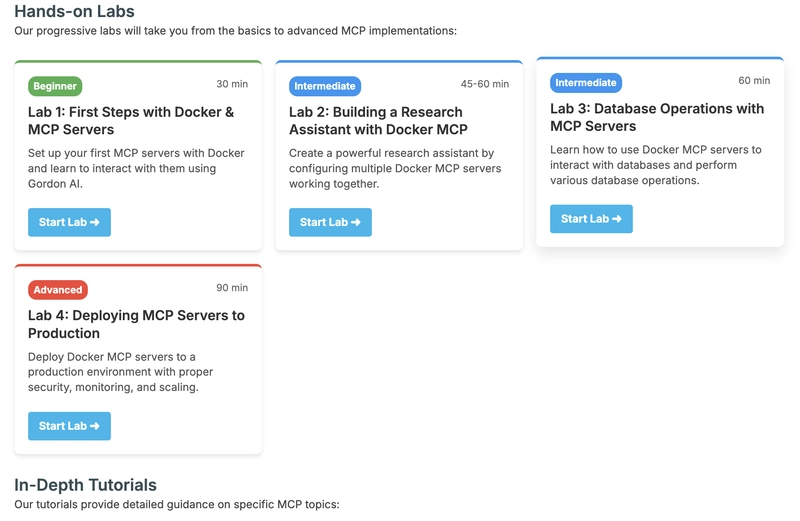
Hello Community! I'm excited to share a project I've been working on: the MCP Community Portal.
Click here to visit the portal
This is a modern, community-driven collection of Docker Model Context Protocol (MCP) servers, tools, and resources that aims to revolutionize how AI assistants like Claude interact with external systems.
What is the MCP Portal all about?
The Model Context Protocol (MCP) is an emerging standard that enables AI assistants to interact directly with external tools, databases, and services without requiring complex API integrations or extensive coding knowledge.
The MCP Portal serves as:
- A central hub for MCP servers - Pre-built Docker containers that implement the MCP protocol for various services (databases, file systems, time services, etc.)
- Educational resource - Comprehensive labs and tutorials that walk through setup, configuration, and practical use cases
- Community showcase - Highlighting innovative ways people are extending AI capabilities through MCP
- Documentation repository - Clear explanations of how MCP works, best practices, and security considerations
For example, you can set up an MCP server that connects PostgreSQL to Claude Desktop, allowing the assistant to query your database, analyze data, and create visualizations—all through conversational prompts without writing a single line of code.
Why is this important?
1. Democratizing AI Integration
Traditional AI integrations require either:
Complex API development and token management
Technical knowledge that creates barriers for many users
Custom coding for each new integration
MCP fundamentally changes this paradigm. With dockerized MCP servers, nearly anyone can extend their AI assistant's capabilities with minimal setup. This democratizes access to advanced AI integration, putting these tools in the hands of non-developers as well as technical users.
2. Enhancing AI Productivity
When AI can directly interface with your tools and data:
- Context windows are used more efficiently (no need to paste large blocks of data)
- Assistants can verify information rather than hallucinate
- Complex workflows can be automated through natural language
- Data analysis becomes conversational rather than technical
Building a Community-Driven Ecosystem
The open nature of the MCP Portal encourages:
- Shared innovation as users contribute their own MCP servers
- Collaborative problem-solving for common integration challenges
- Standardization that benefits the entire AI ecosystem
- Knowledge sharing across domains and use cases
An Invitation to Contribute
The MCP Portal is in active development, and we're looking for contributors! Whether you're a Docker expert, AI enthusiast, or someone excited about the potential of MCP, there are many ways to get involved:
- Try out the existing MCP servers and share your experience
- Develop new MCP servers for additional tools and services
- Create tutorials showing innovative uses of MCP
- Improve documentation to make the technology more accessible
- Share your MCP use cases to inspire others
The repository includes a Reddit RSS feed aggregator, PostgreSQL integration examples, and step-by-step labs to help you get started.
Getting Started
To explore the MCP Portal:
- Visit the GitHub repository: https://github.com/ajeetraina/mcp-portal
- Check out the labs section for guided exercises
- Try setting up your first MCP server (the PostgreSQL tutorial is a great starting point)
- Join the discussion by opening issues or contributing PRs
Using Docker
git clone https://github.com/ajeetraina/mcp-portal
cd mcp-portal
docker compose up -d --build
I believe MCP represents a significant shift in how we work with AI assistants, moving from isolated systems to deeply integrated helpers that can truly enhance our productivity.
Have you experimented with MCP or similar technologies? I'd love to hear your thoughts and ideas in the comments!











































































































































































![[The AI Show Episode 142]: ChatGPT’s New Image Generator, Studio Ghibli Craze and Backlash, Gemini 2.5, OpenAI Academy, 4o Updates, Vibe Marketing & xAI Acquires X](https://www.marketingaiinstitute.com/hubfs/ep%20142%20cover.png)















































































































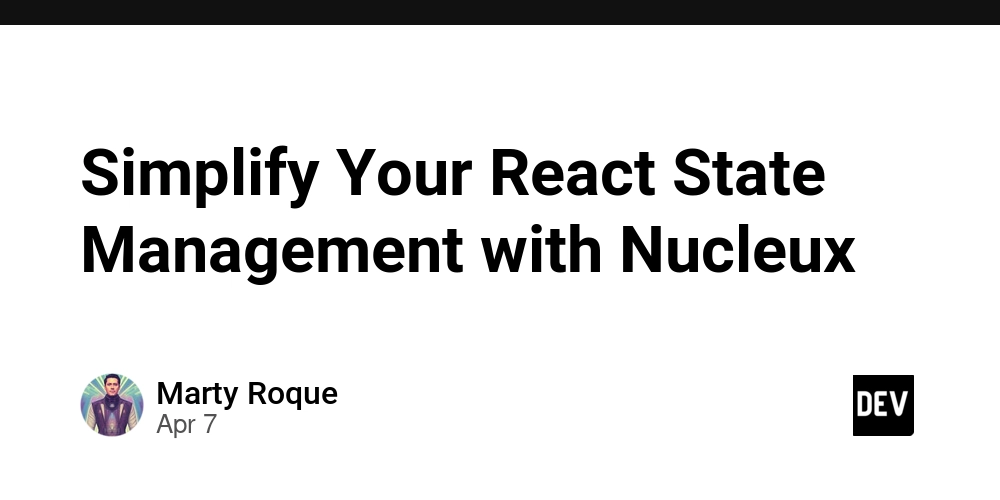
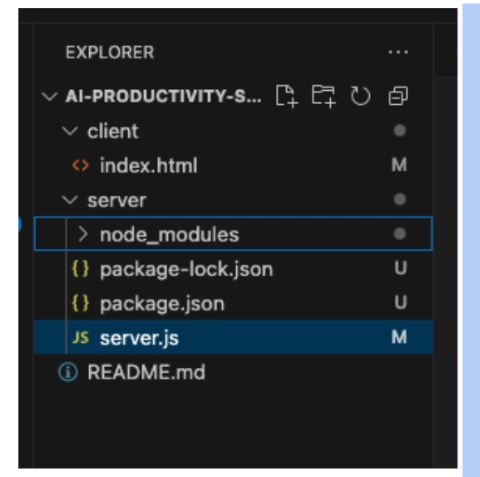

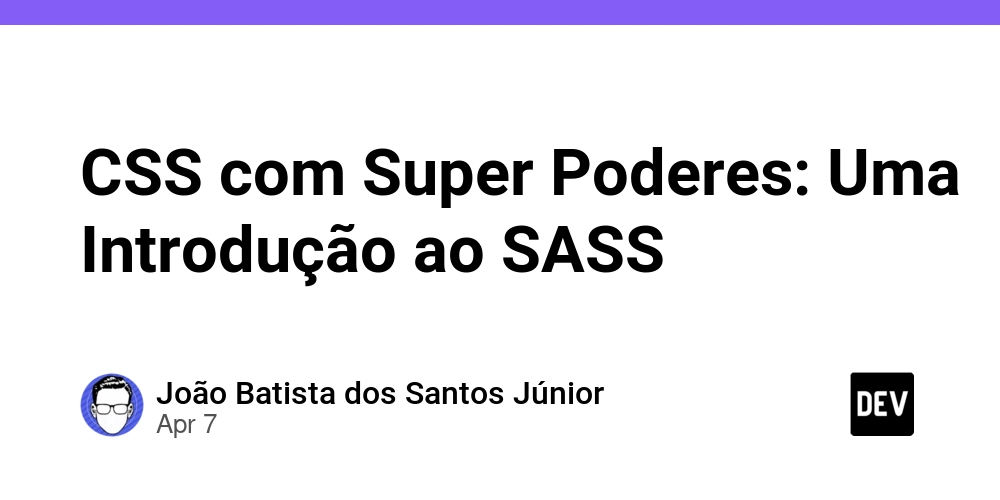









![[DEALS] The Premium Learn to Code Certification Bundle (97% off) & Other Deals Up To 98% Off – Offers End Soon!](https://www.javacodegeeks.com/wp-content/uploads/2012/12/jcg-logo.jpg)


![From drop-out to software architect with Jason Lengstorf [Podcast #167]](https://cdn.hashnode.com/res/hashnode/image/upload/v1743796461357/f3d19cd7-e6f5-4d7c-8bfc-eb974bc8da68.png?#)








































































































.png?#)

































_Christophe_Coat_Alamy.jpg?#)
 (1).webp?#)





































































































![Apple Considers Delaying Smart Home Hub Until 2026 [Gurman]](https://www.iclarified.com/images/news/96946/96946/96946-640.jpg)
![iPhone 17 Pro Won't Feature Two-Toned Back [Gurman]](https://www.iclarified.com/images/news/96944/96944/96944-640.jpg)
![Tariffs Threaten Apple's $999 iPhone Price Point in the U.S. [Gurman]](https://www.iclarified.com/images/news/96943/96943/96943-640.jpg)

































































































































